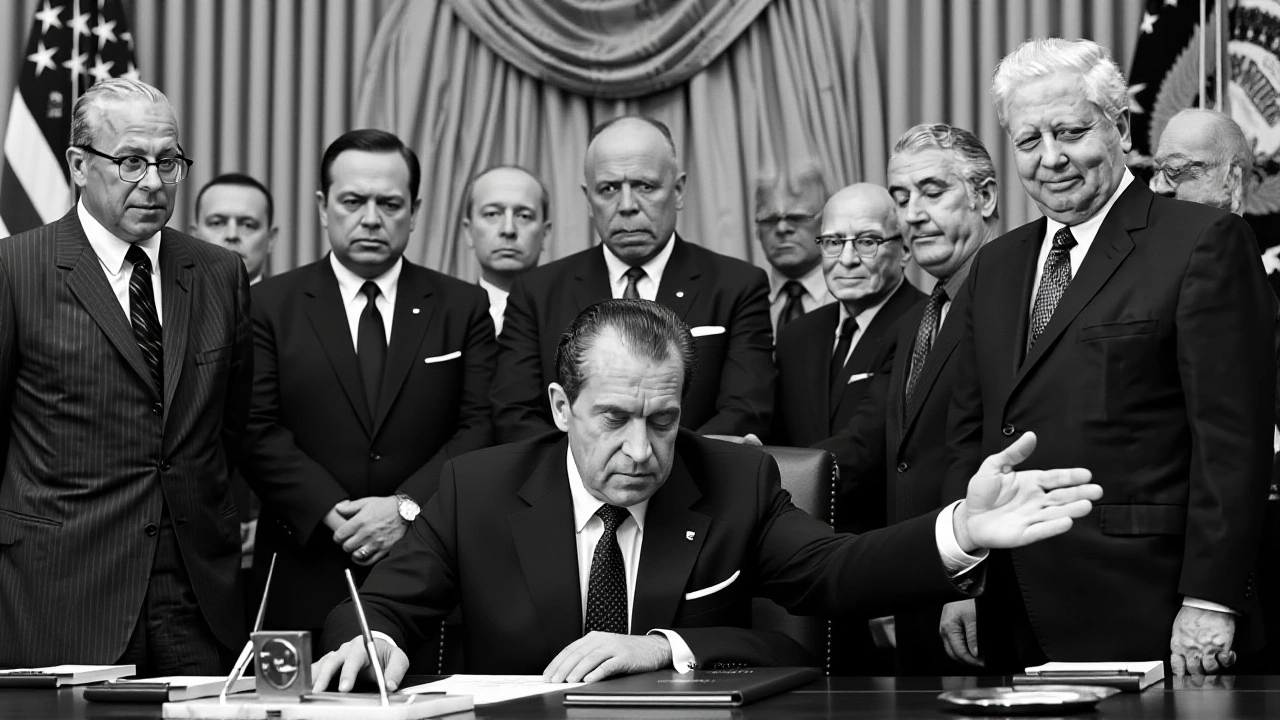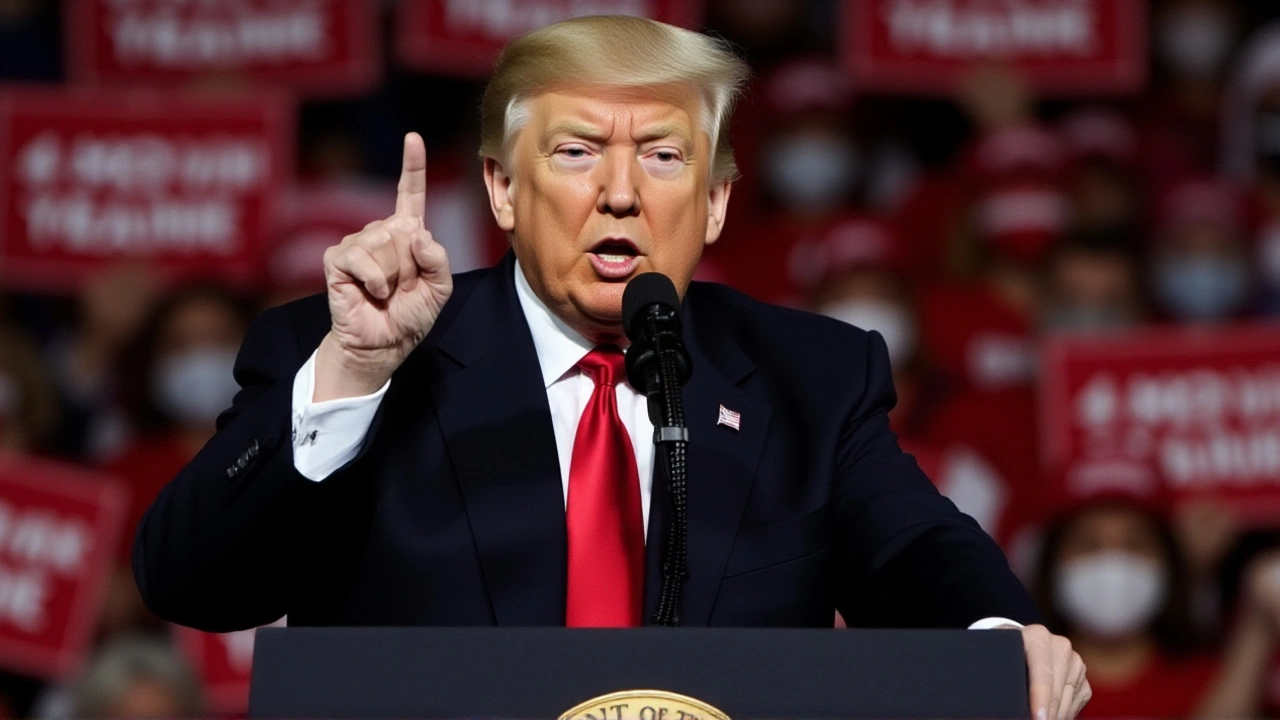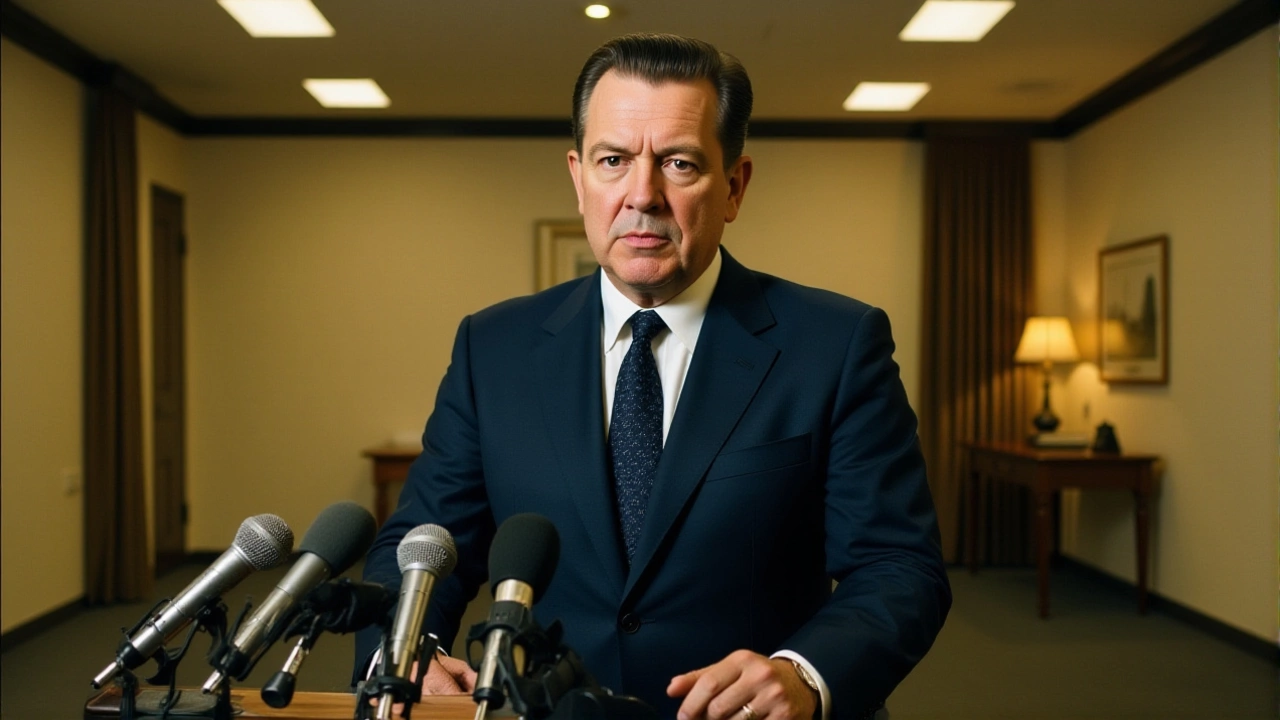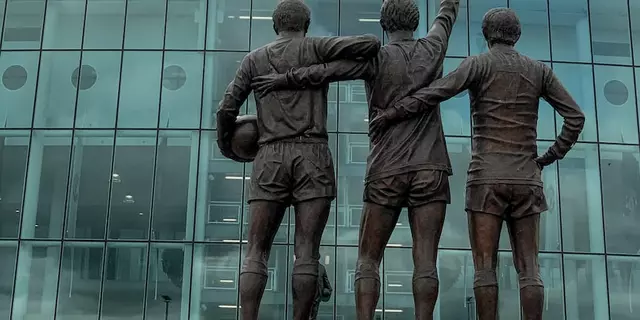On November 7, 1972, Richard Nixon won the presidency in the most lopsided landslide in American history—60.7% of the popular vote, 520 electoral votes, 49 states carried. Yet beneath the celebration, a rot was spreading. Five men caught breaking into the Watergate Office Building in Washington, D.C., weren’t just burglars. They were operatives tied to Nixon’s re-election committee, CREEP. What started as a botched wiretap would unravel the presidency itself.
The Landslide That Shouldn’t Have Been Possible
Nixon’s victory was staggering. He outpolled George McGovern by nearly 18 million votes—a 23.2% margin that still stands as the widest in U.S. history. McGovern won only Massachusetts and Washington, D.C. Even with his campaign in shambles—after his running mate, Thomas Eagleton, was forced off the ticket over past electroshock therapy for depression—McGovern’s platform of ending the Vietnam War and expanding social welfare couldn’t compete with Nixon’s carefully crafted image as the steady hand on the tiller.Behind the scenes, Nixon had already achieved foreign policy triumphs: opening relations with China, signing the SALT I treaty with the Soviet Union, and promising to withdraw troops from Vietnam. Voters rewarded pragmatism over idealism. But Nixon’s campaign wasn’t just running on policy—it was running on sabotage.
Watergate: The Break-In That Wasn’t an Isolated Crime
The break-in at the Watergate Office Building on June 17, 1972, wasn’t the first illegal act. It was the tip of an iceberg. The five men arrested—James McCord, Bernard Barker, Virgilio Gonzalez, Eugenio Martinez, and Frank Sturgis—were all connected to CREEP. One of them, McCord, was Nixon’s former CIA operative and security director. The cash found on them? Traced back to a slush fund raised illegally in the Midwest.But the Watergate burglary was just one piece. The Nixon White House had already created the Plumbers Unit—a covert team tasked with plugging leaks, most notably after Daniel Ellsberg leaked the Pentagon Papers. They’d broken into the office of Ellsberg’s psychiatrist. They’d used the IRS to target political enemies. They’d pressured corporations like Northrop Grumman, 3M, and American Airlines into making illegal campaign contributions under threat of regulatory retaliation.
What made Nixon’s downfall inevitable wasn’t just the crime—it was the cover-up. And he recorded it all.

The Tapes That Doomed a President
Nixon had installed a secret voice-activated recording system in the Oval Office—believing it would help him write memoirs. Instead, it became his death warrant. As investigators pressed, Nixon refused to release the tapes, claiming executive privilege. The public didn’t know what was on them. But they knew something was wrong.The Senate Watergate Committee hearings, televised nationally in 1973, turned ordinary Americans into amateur detectives. The dramatic testimony of John Dean, Nixon’s former White House counsel, revealed a president who knew, approved, and directed the obstruction. When Special Prosecutor Archibald Cox was fired in the "Saturday Night Massacre," the nation’s trust in the White House shattered.
On July 24, 1974, the Supreme Court ruled unanimously—United States v. Nixon—that no president is above the law. Nixon had to surrender the tapes. One of them, recorded on June 23, 1972, just six days after the break-in, captured Nixon instructing his chief of staff to use the CIA to block the FBI’s investigation. The "smoking gun" was undeniable.
Resignation: The Unthinkable Happened
Sixteen days after the ruling, on August 9, 1974, Richard Nixon became the first—and still only—U.S. president to resign. He did so to avoid certain impeachment by a House that had already approved three articles of impeachment: obstruction of justice, abuse of power, and contempt of Congress. The Senate, too, was poised to convict. His vice president, Gerald Ford, took the oath of office the same day.By 1976, federal prosecutors had convicted 18 corporations of illegal campaign contributions. Braniff Airlines paid a $50,000 fine. 3M admitted to funneling $50,000 through a dummy corporation. The message was clear: money bought access, and power bought silence.

Legacy: A Democracy’s Wake-Up Call
Nixon’s 1972 victory remains the most dominant in electoral history. But his presidency ended in disgrace. The scandal reshaped American politics: campaign finance laws were tightened, the Freedom of Information Act was strengthened, and the press—emboldened by Woodward and Bernstein—became a more aggressive watchdog.It also left a haunting question: How could a president so widely supported be so deeply corrupt? The answer lies in the quiet erosion of norms. Nixon didn’t need to win votes—he needed to crush opponents. And in his mind, that justified anything.
Today, Watergate isn’t just history. It’s a warning. When institutions are weakened, when accountability is dismissed as partisan, when a leader believes they’re above the law—democracy doesn’t collapse with a bang. It fades, quietly, one illegal act at a time.
Frequently Asked Questions
How did the Watergate scandal change campaign finance laws in the U.S.?
In response to Watergate, Congress passed the Federal Election Campaign Act Amendments of 1974, creating the Federal Election Commission (FEC) and imposing strict limits on individual and corporate donations. The law also required full disclosure of campaign contributions and expenditures, making secret slush funds illegal. By 1976, 18 corporations had been convicted of violating these new rules, including major firms like 3M and American Airlines.
Why did Nixon’s foreign policy success not save him from scandal?
Nixon’s diplomatic wins—opening China, negotiating SALT I—boosted his approval ratings, but they didn’t erase the public’s growing distrust of his administration’s tactics. Voters may have supported his policies, but the Watergate tapes revealed a president who lied, spied, and abused power. The scandal wasn’t about policy—it was about integrity. And once the tapes proved he obstructed justice, even his strongest supporters turned away.
What role did the Supreme Court play in Nixon’s resignation?
The Supreme Court’s unanimous 1974 ruling in United States v. Nixon forced the president to surrender the Oval Office tapes, rejecting his claim of absolute executive privilege. The decision established that no president is above the law. One tape, the "smoking gun," proved Nixon ordered the cover-up just days after the Watergate break-in. Without that evidence, impeachment might have stalled. With it, his presidency collapsed.
How did George McGovern’s campaign contribute to his landslide loss?
McGovern’s campaign was plagued by disorganization and internal division. After his original running mate, Thomas Eagleton, was forced off the ticket due to psychiatric treatment, the Democratic Party appeared fractured. McGovern’s platform—immediate Vietnam withdrawal, universal basic income—was seen as radical by mainstream voters. Nixon exploited this, painting him as an extremist without ever naming him. The media, too, amplified the chaos, making McGovern look unelectable.
Were any of Nixon’s top aides convicted in Watergate?
Yes. Twelve Nixon administration officials were convicted or pleaded guilty, including his chief of staff H.R. Haldeman, domestic advisor John Ehrlichman, and Attorney General John Mitchell. All served prison time. Even John Dean, who cooperated with prosecutors, was disbarred. Only Henry Kissinger, Nixon’s national security adviser, escaped prosecution—despite his role in the Plumbers Unit and controversial foreign policy decisions.
What happened to the Watergate burglars after the trial?
All five burglars were convicted in January 1973 and sentenced to prison terms of 1 to 3.5 years. James McCord, the only one with direct ties to the White House, received a lighter sentence after testifying against his former colleagues. The others served their full terms. In 1977, President Ford granted clemency to all seven convicted Watergate figures, including the burglars and top aides, in a controversial move meant to help the nation heal.











